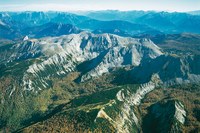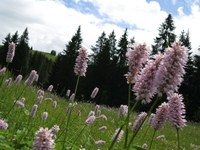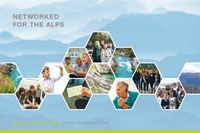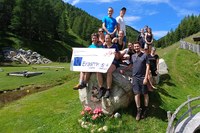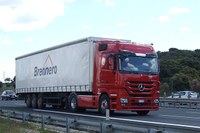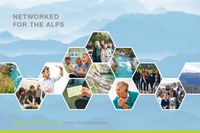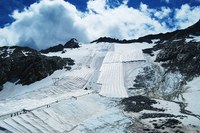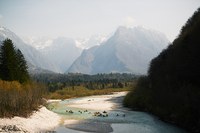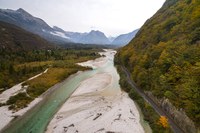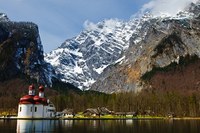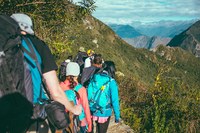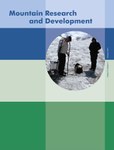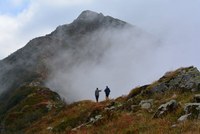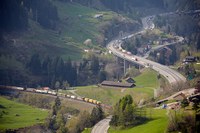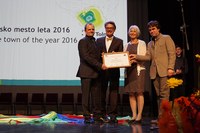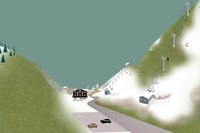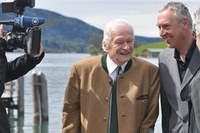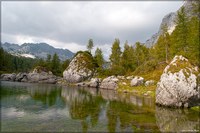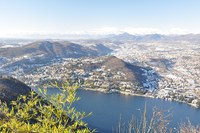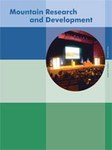Germany
News, publications, press releases, positions... on this page you find current and alpine-relevant information from Germany.
Articles, publications, press releases, CIPRA positions - here you find relevant information on alpine topics from Germany. Please check the other language versions in german, french, italian and slovene for more content.
No ski-lift connection permitted in nature reserve
The Federal State of Upper Austria gave its legal opinion on the expansion of the “Höss-Wurzeralm” ski area in April. The matter is now on file. Read More…
speciAlps
[Project completed] Grasslands, marshes, hedges, biotopes and woods are examples of natural treasures and biological diversity that are of great value to alpine regions and municipalities. Not only do they offer a habitat for plants and animals, but also humans value functioning natural areas for their attractiveness and the quality of life they offer. Nevertheless, –these areas have much more potential than we often realise and there is much more every municipality can do! Read More…
whatsalps youth
[Project completed] Many young people spend most of their time indoors, sit in front of the TV or the computer. The "whatsalp youth"-project lured them out. The CIPRA Youth Council, together with CIPRA International and other project partners, was implementing it. Read More…
Transit traffic: a partial success on the Gotthard Pass
The Gotthard Pass has seen a historic low in transalpine goods traffic since the adoption of the law governing the modal shift. In contrast, the number of trucks crossing the Brenner Pass continues to increase. Read More…
Point of view: A "man's world" and "women's work": time to move on
Equal opportunities are still a women’s topic . Yet there are sufficient reasons to treat it as an issue for society as a whole. Everyone benefits – especially in the Alps, believes Barbara Wülser, deputy director of CIPRA International. Read More…
Networked for the Alps
CIPRA is a small organisation that can boast a large network. Its annual report shows how this permits people to tackle the challenges facing the Alps together. Read More…
Polluted glaciers
Pesticides, herbicides, medicines – all these materials were found at over 2,700 metres above sea level. The water flowing down from the Presena glacier into the valley reflects this state of affairs. Read More…
Paddling for the “blue heart” of Europe
The end of March saw the start of the Balkan Rivers Tour in Slovenia, the largest water protection action in Europe. The aim is to protect its last unspoilt rivers. Read More…
International Day of Action for Rivers
Fishing, farming, swimming, canoeing, hiking, drinking…. All in all, we are thousands of people benefiting from the resources provided by alpine rivers. However, only healthy rivers can provide these so-called ecosystem services. Alpine river ecosystems are vulnerable and often under pressure from various human activities. Can we do more to protect them? Yes! Read More…
Economic activity in mountain areas
What can – and cannot – mountain areas do? Two new studies from Germany and Switzerland show the opportunities and weaknesses of regional economies and demonstrate that mountain areas can help in determining their own economic future. Read More…
The wandering classroom
Young people spend the majority of their school time indoors. The new “whatsalp youth” project moves the classroom into the mountains and learning into the great outdoors. Read More…
Mountain Research and Development, Vol 37, No 1: Special Issue
This issue offers 14 peer-reviewed articles focusing on questions related to water, risk reduction, energy, land use change, biodiversity, vegetation ecology, conservation, gender policy, ethnobotany, indigenous knowledge, economic opportunities, mobility, and glacier monitoring—always with sustainable development in mind. Geographically, papers present insights from Nepal, China, Thailand, Kyrgyzstan, Poland, Switzerland, Italy, Ecuador, and Colombia. Read More…
Worthwild
[Project completed] Only minimally impacted by human intervention, areas with limited infrastructural development in the Alps provide European societies with a wide range of ecosystem services, such as the conservation of biodiversity and climate regulation. Read More…
AlpInnoCT
[Project completed] The Alps are a sensitive ecosystem that has to be protected from pollutant emissions and climate change. The alpine road freight transport has enormous ecological and sociocultural effects on the alpine habitat. Most actors such as forwarders, port operators, administrations and consumers, are aware of these negative effects and they are working on their own technical or regulatory solutions. However, a constructive and participatory dialogue between all involved actors, in order to promote sustainable freight transport within the Alps, has not been established so far. Read More…
Urban regions show the way forward
The “Alpine Town of the Year” association is celebrating its 20th anniversary. A brief summary of the facts shows that throughout the past years Alpine cities have been pioneers of sustainable development in the Alps. Read More…
Solstice in winter tourism
Tourism has brought wealth to the Alps. In many regions it remains an important source of income, but lack of economic diversification is also a risk. The importance and orientation of tourism differs strongly among Alpine countries, but all of them need new strategies and approaches to cope with shifts in visitor behaviour and climate change. A socio-economic transformation is needed that takes account of tourism’s past, present and future potential. Read More…
Winter tourism – a destination shaping change
What are the challenges facing winter tourism in these times of climate change and new patterns of visitor behaviour? CIPRA takes a fictional resort and presents the possible decisions and their consequences: the interactive presentation is accompanied by a web dossier and a position paper. Read More…
CIPRA mourns Wolfgang Burhenne
The nature conservationist and environmental campaigner Wolfgang Burhenne, whose activities took him all round the world, died on 6 January 2017. The 93-year old was a co-founder and the first secretary-general of CIPRA. Read More…
Foundations laid for Triglav National Park
It has taken 16 years, but the management plan for Slovenia’s only national park is now ready. The participatory process has ensured that it is broad-based in nature. Read More…
Open Alps 2017
The end of 2016 saw the announcement of the winners of the 2017 “Open Alps” human rights award. This honour is given to individuals or groups who actively work for the rights of refugees, immigrants, socially disadvantaged persons and threatened minorities in Europe. Read More…
Sad, but true
Tignes, located in the French Alps, is responding to the retreat of glaciers, and thus of the available ski pistes, with a very special project of its own: Read More…
Mountain Research and Development, Vol 36, No 4: Mountains of Our Future Earth
Papers emerged from the 2015 Perth III mountain conference and contribute to Future Earth. The first 3 present a tool to compare mountain photos, gender-sensitive participatory agroforestry, and social impact assessment; others explore seedling regeneration, ecosystem services, visitors’ use of energy, in-migration dynamics, environmental impacts of migration, and farmers’ decision-making. The last 3 are review-based agendas for future mountain research Read More…
New project financing ensures a sound basis
Migration, youth participation, mobility, spatial planning: CIPRA International has recently received assurances for the financing of projects in these areas. Here is an overview. Read More…
Alps without Olympics: CIPRA’s demands concerning Olympic Winter Games
CIPRA International believes that, given the present situation, the Olympic Winter Games should no longer be held in the Alps. The Alps should remain the Olympic-free zone they have been since 2006. As they currently stand, the Olympic Winter Games are neither environmentally nor socially acceptable. CIPRA is therefore opposed to the Winter Olympics being staged in the Alps – or anywhere else – in their current form. Developments in recent decades show that the mountain regions are no longer suitable venues for these environmentally harmful and ruinous major events. Referendums held in the Canton of Grisons and in Munich prove that large segments of the population of the Alps are no longer willing to shoulder the burden of Olympic Winter Games. Read More…
